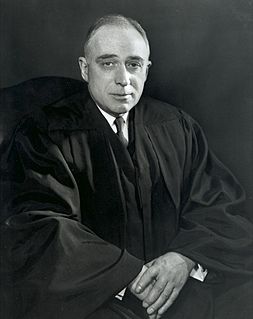Top 136 Citizenry Quotes & Sayings - Page 3
Explore popular Citizenry quotes.
Last updated on November 20, 2024.
[I]t's impossible to evade the fact that Endless War will inevitably degrade the citizenry of the country that engages in it. A country which venerates its military above all other institutions, which demands that its soldiers be spoken of only with religious-like worship, and which continuously indoctrinates its population to believe that endless violence against numerous countries is necessary and just - all by instilling intense fear of the minorities who are the target of that endless violence - will be a country filled with citizens convinced of the virtues and nobility of aggression.
Rome tolerated every abominable practice, embraced every foul idea in the name of freedom and the rights of the common man. Citizens no longer carried on deviant behavior in private, but pridefully displayed it in public. It was those with moral values who could no longer freely walk in a public park without having to witness a revolting display. What happened to the public censors who protected the majority of citizenry from moral decadence? Did freedom have to mean abolishing common decency? Did freedom mean anyone could do anything they wanted anytime they wanted, without consequences?
A system in which legal police shootings of unarmed civilians are a common occurrence is a system that has some serious flaws. In this case, the drawback is a straightforward consequence of America's approach to firearms. A well-armed citizenry required an even-better-armed constabulary. Widespread gun ownership creates a systematic climate of fear on the part of the police. The result is a quantity of police shootings that, regardless of the facts of any particular case, is just staggeringly high. Young black men, in particular, are paying the price for America's gun culture.
It will be good for us in the long run, and I mean there are six and a half billion people in this world. And it's great for 300 million to keep enjoying more and more property, but I think it's terrific if the remainder do. And I think if they can learn something from us in terms of our system, and I think they have, they are learning more about how to unleash the potential of their citizenry to turn out more goods and services that their citizens want or that we want, I think that's terrific.
I think it's something that the citizenry needs to be vigilant about - participating in democracy, and that includes issues like what's going on and how much secrecy and transparency there should be. That's an on-going thing - in a democracy you want checks and balances and oversight, but you need a covert agency to protect the country. It's a very tricky balance and I think it changes as the world changes and I think we all need to be mindful of that.
There is nothing puzzling ... about America's gratuitously aggressive foreign policy or about the oligarchs' successful efforts to drag the Republic into five wars. What an aggressive foreign policy accomplishes by slow degrees, a state of war accomplishes in a trice. Overnight [war] kills reform, overnight it transforms insurgents into traitors and the Republic into an imperiled realm. Overnight it strangles free politics, distracts and overawes the citizenry. Overnight it blasts public hope.
A popular feel for scientific endeavors should, if possible, be restored given the needs of the twenty-first century. This does not mean that every literature major should take a watered-down physics course or that a corporate lawyer should stay abreast of quantum mechanics. Rather, it means that an appreciation for the methods of science is a useful asset for a responsible citizenry. What science teaches us, very significantly, is the correlation between factual evidence and general theories, something well illustrated in Einstein's life.
Where utopianism is advanced through gradualism rather than revolution, albeit steady and persistent as in democratic societies, it can deceive and disarm an unsuspecting population, which is largely content and passive. It is sold as reforming and improving the existing society's imperfections and weaknesses without imperiling its basic nature. Under these conditions, it is mostly ignored, dismissed, or tolerated by much of the citizenry and celebrated by some. Transformation is deemed innocuous, well-intentioned, and perhaps constructive but not a dangerous trespass on fundamental liberties.
Today's political leaders demonstrate their low opinion of the public with every social law they pass. They believe that, if given the right to chose, the citizenry will probably make the wrong choice. Legislators do not think any more in terms of persuading people; they feel the need to force their agenda on the public at the point of a bayonet and the barrel of a gun, in the name of the IRS, the SEC, the FDA, the DEA, the EPA, or a multitude of other ABCs of government authority.
The constitutional right of free expression... is designed and intended to remove governmental restraints from the arena of public discussion, putting the decision as to what views shall be voiced in the hands of each of us, in the hope that the use of such freedom will ultimately produce a more capable citizenry and more perfect polity and in the belief that no other approach would comport with the premise of individual dignity and choice upon which our political systems rests.
Our marvelous new information technologies boost our power and opportunities for political engagement, but they can also disempower us by contributing to extreme political mobilization that sometimes overwhelms our institutions. These institutions were designed for rural societies operation at a tiny fraction of today's speed and with a citizenry vastly less capable that today's. It's unclear how they will change to adapt to the new reality, but change they must.
[The] erroneous assumption is to the effect that the aim of public education is to fill the young of the species with knowledge and awaken their intelligence, and so make them fit to discharge the duties of citizenship in an enlightened and independent manner. Nothing could be further from the truth. The aim of public education is not to spread enlightenment at all; it is simply to reduce as many individuals as possible to the same safe level, to breed and train a standardised citizenry, to put down dissent and originality.
In the councils of government, we must guard against the acquisition of unwarranted influence, whether sought or unsought, by the military industrial complex. The potential for the disastrous rise of misplaced power exists and will persist. We must never let the weight of this combination endanger our liberties or democratic processes. We should take nothing for granted. Only an alert and knowledgeable citizenry can compel the proper meshing of the huge industrial and military machinery of defense with our peaceful methods and goals, so that security and liberty may prosper together.
One of my first role models was Eugene Lang, a wealthy businessman who went back to his elementary school in East Harlem and addressed the sixth-grade class. He looked out at that sea of faces and said, "If any of you wants to go to college, I will pay for it." When I read that, I burst into tears. It was so generous and so basic. Not fluffy. I can't understand why we scrimp on education and shortchange our kids. Why would the citizenry do that to the people who are going to inherit its republic?
No matter the specific techniques involved, historically mass surveillance has had several constant attributes. Initially, it is always the country’s dissidents and marginalized who bear the brunt of the surveillance, leading those who support the government or are merely apathetic to mistakenly believe they are immune. And history shows that the mere existence of a mass surveillance apparatus, regardless of how it is used, is in itself sufficient to stifle dissent. A citizenry that is aware of always being watched quickly becomes a compliant and fearful one.
The city might be savage, stray dogs might share the streets with grimy urchins whose blank eyes reflected the knowledge that they might soon be covered over, blinded forever, by the same two pennies just begged from some gentleman, and no one in the fuming, fulminous boulevards of trade might know who actually ran Ambergris-or, if anyone ran it at all, but, like a renegade clock, it ran on and wound itself heedless, empowered by the insane weight of its own inertia, the weight of its own citizenry.














